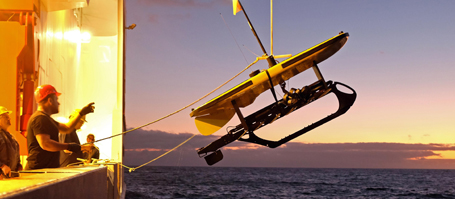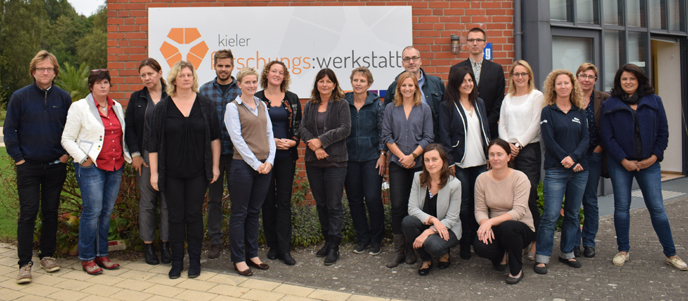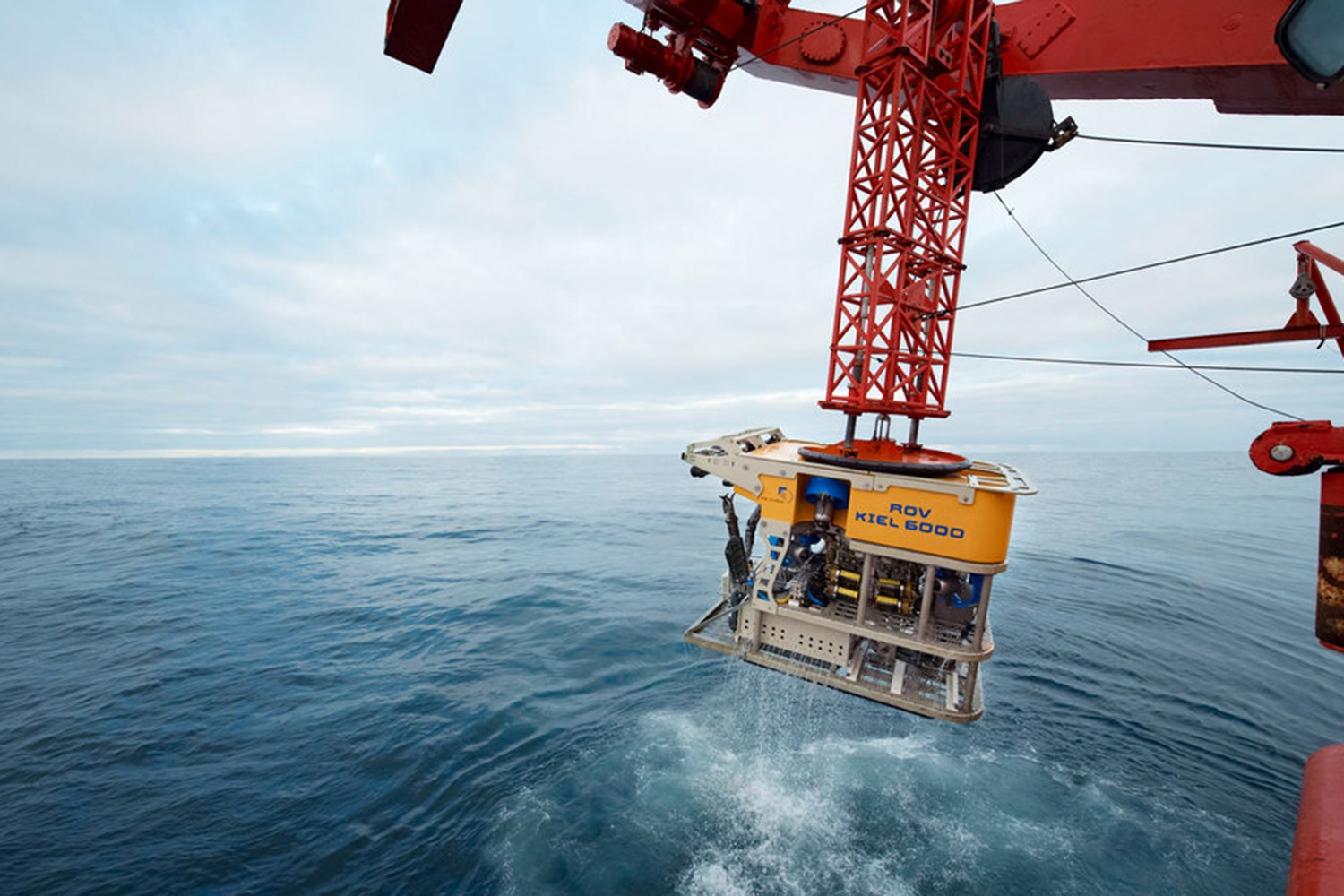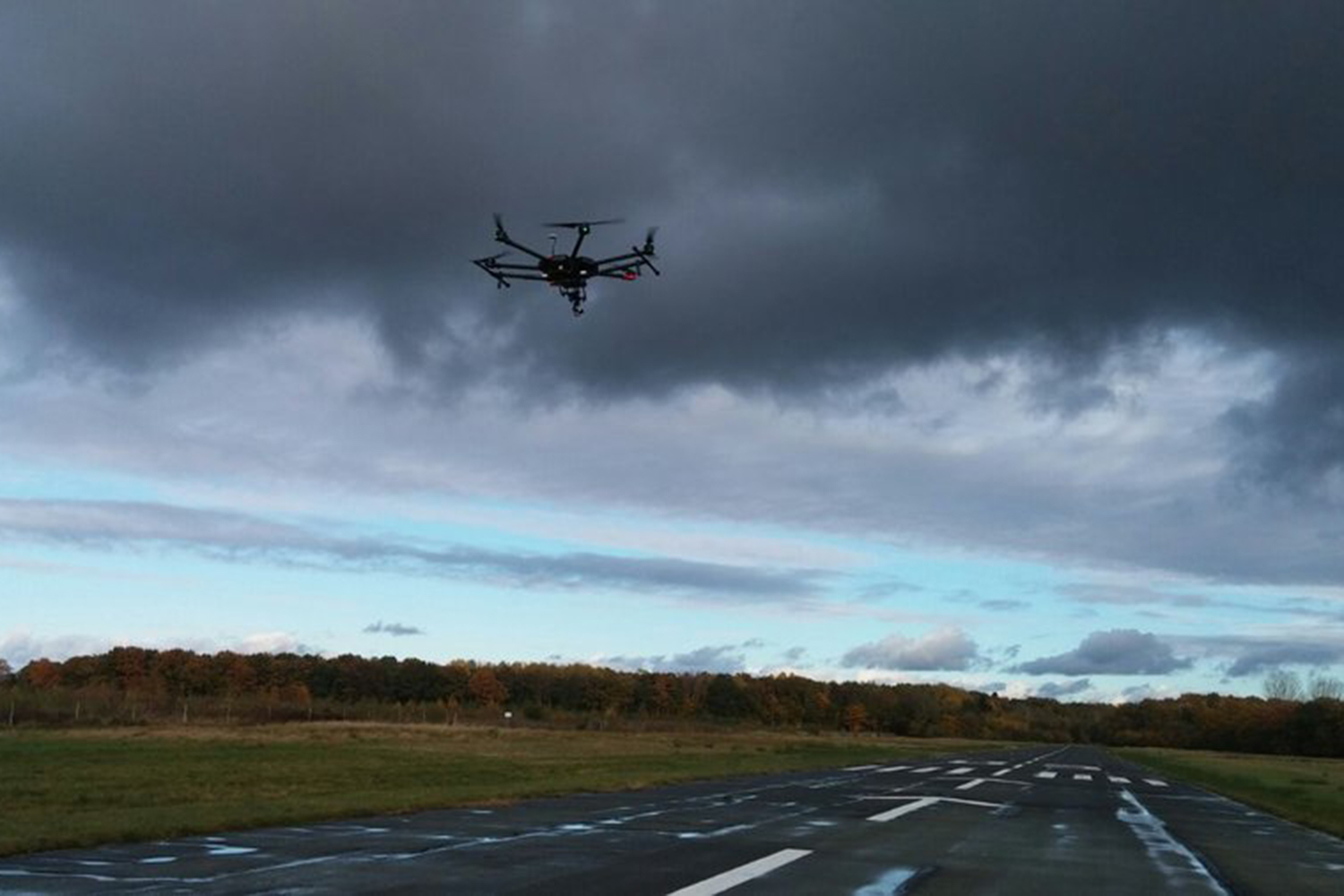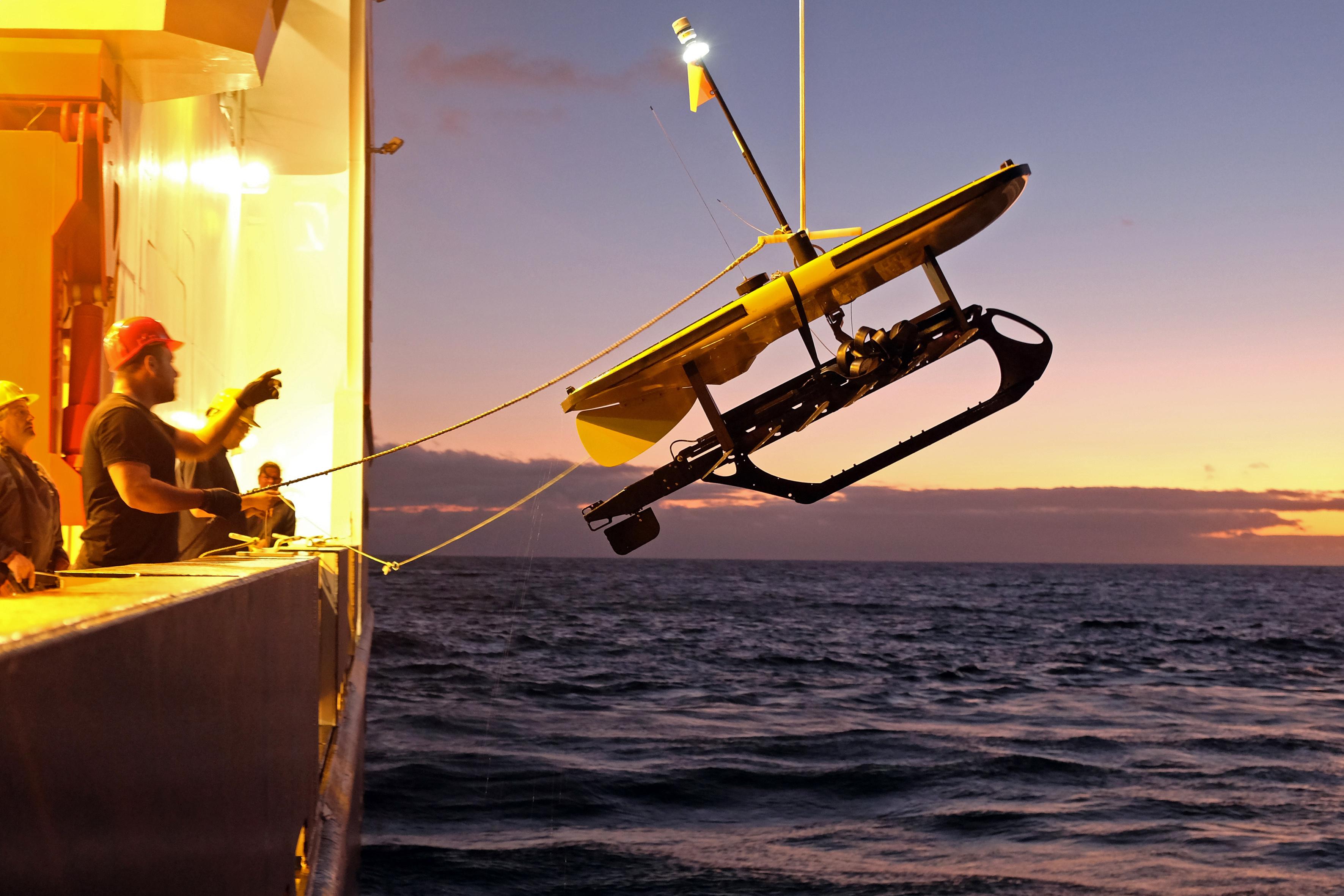For Kiel’s marine scientists in the Cluster of Excellence “The Future Ocean” the observation of the largest ecosystem of the Earth is of great importance. However, research vessels provide only individual measurements, and satellite data often lacks the needed precision. For more than 15 years, comprehensive observation systems – autonomic measuring platforms such as Argo floats and gliders floating freely in the sea – have provided us with a massive amount of data from the depths of the world’s oceans and transferred them to research institutes world-wide. With the help of these global as well as local and regional measurements scientists can make statements about the state of the marine environment; discover previously unknown phenomena and scientifically study them. Many of these measurements however are limited in space and the data collected by one system is not always compatible with those of other systems. But which data are actually needed to contribute to a better understanding of the ocean? And how can these be processed, analyzed and assessed?
The lecture series “Ocean Observation – from Sensor to Knowledge“ in the summer semester 2016 is devoted to the procedures for data collection, data transformation and deals with the processing of data into information. Societal questions such as early warning systems for potential tsunamis, the consequences of world-wide fisheries or predictions for shipping routes play a role as well as the technological advancement of models or freely movable measuring platforms. The lecture series is organized by Kiel’s Cluster of Excellence “The Future Ocean” and has attracted internationally renowned experts to Kiel. The lecture by Professor Wolfgang Hiller from the Alfred Wegener Institute in Bremerhaven will mark the beginning of the series with a lecture about tsunami early warning systems (May 19th, 13 pm in the Wissenschaftszentrum (Science Center) Kiel).
The program is aimed at the interested public, students of all faculties, scientists, school students as well as their teachers. Admission is free.
The program (in German) for download (pdf)
Links
www.futureocean.org/ozeanbeobachtung
www.futureocean.org
The program in detail:
19. Mai 2016, 13:00 Uhr
"Tsunami Frühwarnsysteme - Ein Blick hinter die Kulissen“ (Early warning systems –behind the scenes)
Prof. Wolfgang Hiller, Alfred-Wegener-Institute (AWI), Bremerhaven
Place: Wissenschaftszentrum, Fraunhoferstraße 13, 24118 Kiel
2. Juni 2016, 17:00 Uhr
"Big brother's blue eyes: Wie Beobachtungen aus dem Weltall die globale Fischerei verändern.” (Big brother's blue eyes: How observations from the atmosphere are changing global fisheries.)
Prof. Dr. Boris Worm, Dalhousie Universität, Kanada
Place: Zoologisches Museum, Hegewischstraße 3, 24105 Kiel
09. Juni 2016, 17:00 Uhr
"Warum wir die Rätsel der Ozeane lösen müssen" (Why we have to solve the riddle of the oceans)
Dr. Ute Münch, Helmholtz-Zentrum Potsdam, Deutsches Geoforschungszentrum (GFZ)
Place: Audimax, Christian-Albrechts-Platz 2, 24118 Kiel
16. Juni 2016, 17:00 Uhr
"Meereskunde am Bundesamt für Seeschifffahrt und Hydrographie: Damals – Heute – Morgen“ (Marine science at the Federal Maritime and Hydrographic Agency of Germany: Yesterday – Today – Tomorrow)
Dr. Jens-Georg Fischer, Bundesamt für Seeschifffahrt und Hydrographie (BSH), Hamburg
Place: Schifffahrtsmuseum, Wall 65, 24103 Kiel
28. Juni 2016, 17:00 Uhr (Lecture in English)
“Living on the ridge: tracking the movements of marine animals in the mid-Atlantic”
Dr. Pedro Afonso, University of the Azores (IMAR), Portugal
Place: Hörsaal (Lecture hall), GEOMAR, Düsternbrooker Weg 20, Kiel
14. Juli 2016, 17:00 Uhr
"Autonome Ozeanbeobachtung: das Dilemma der Meeresforscher" (Autonomous ocean observation: the dilemma of marine researchers)
Prof. Dr. Uwe Send, Scripps Institution of Oceanography, USA
Place: Hörsaal, GEOMAR, Düsternbrooker Weg 20, Kiel
Contact
Dr. Anke Schneider, Scientific coordinater of the semester topic “Ocean Observation – from Sensor to Knowledge“
anke.schneider@email.uni-kiel.de
Friederike Balzereit, Public Outreach, Cluster of Excellence “The Future Ocean“, Telephone 0431-880-3032
fbalzereit@uv.uni-kiel.de
…
